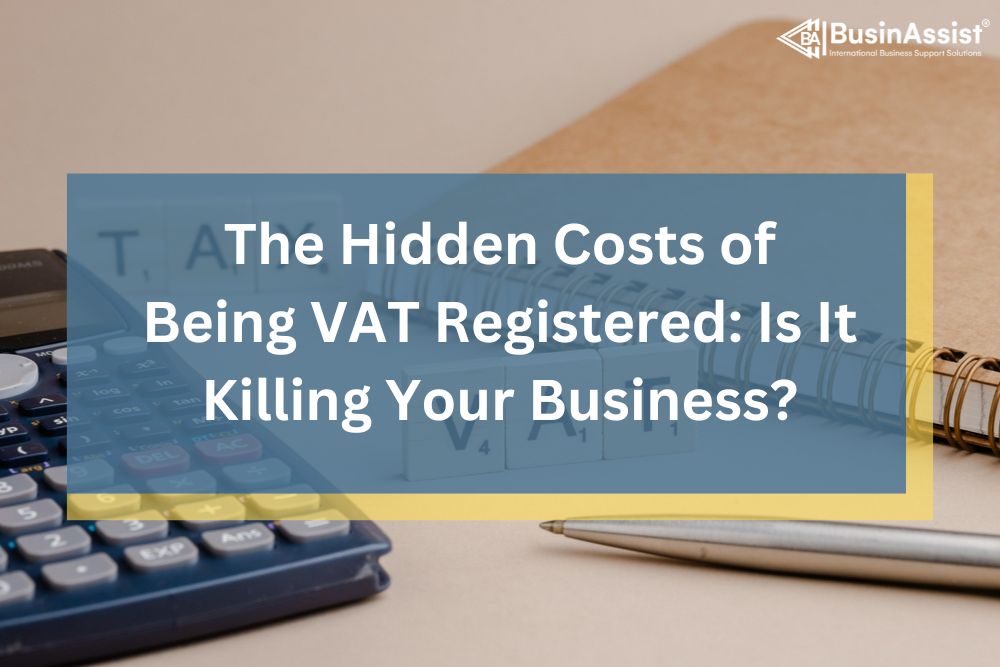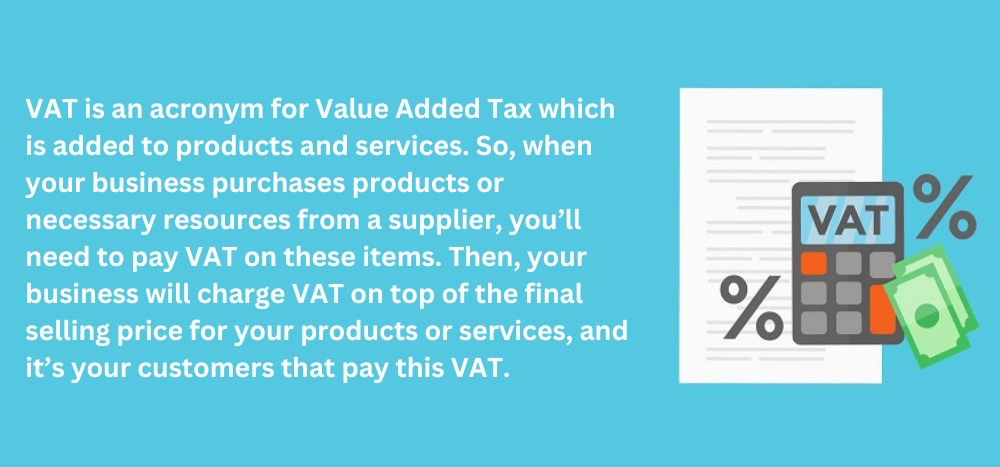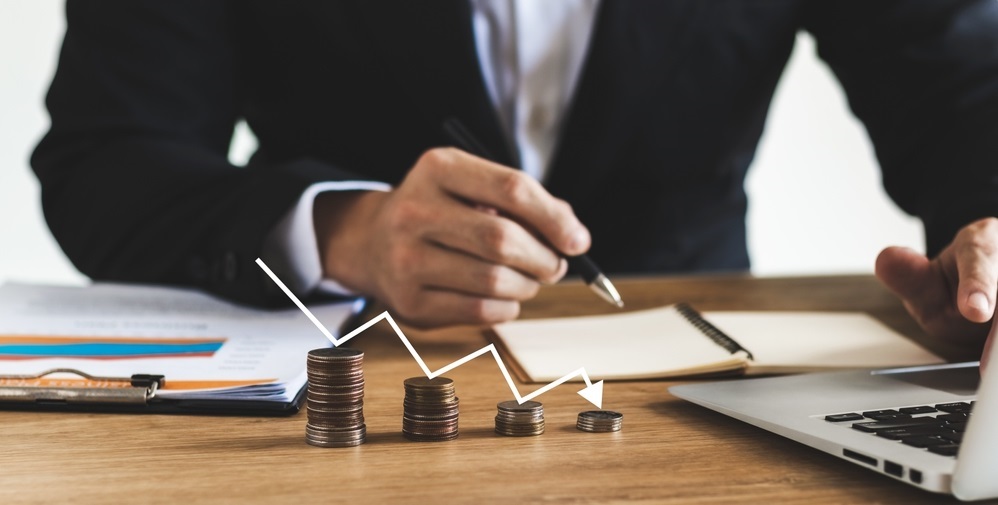Last Updated on December 24, 2025 by Joy Kyalo

UK company formation for just £0.99 and get your UK virtual office address for only £0.88 – available for both UK and non-UK residents!
Being VAT Registered Is Killing my Business: Being VAT-registered requires a high level of accuracy so as not to negatively impact your business’s financial health. Small businesses who voluntarily register for VAT without understanding how to manage it, may feel the pinch since they are struggling.
VAT registration can potentially benefit your business, but if you feel it is a huge drain on both your resources and time, here are some steps you can take to position your business for success.
What Is VAT?
VAT is an acronym for Value Added Tax which is added to products and services. So, when your business purchases products or necessary resources from a supplier, you’ll need to pay VAT on these items. Then, your business will charge VAT on top of the final selling price for your products or services, and it’s your customers that pay this VAT.
VAT registered businesses collect VAT from their clients/customers and send the tax to the government. Your company is only obligated to pay the government the difference between the VAT you paid the supplier and the VAT you have accrued from selling your products and services.

How can being VAT registered negatively impact your UK Limited company?
Being VAT Registered Is Killing my Business: Being VAT registered can have both positive and negative impacts on your UK limited company. Let’s focus on the potential negative impacts:
- Cash flow impact: VAT-registered businesses charge VAT on their sales. However, delays in receiving payments or slow VAT refunds from HMRC can strain small businesses with tight margins. This cash flow impact can be challenging.
- Administrative burden: VAT registration involves detailed record-keeping, regular VAT return filings, and staying updated on complex VAT laws. Small businesses without dedicated accounting teams may find this administrative workload consuming valuable time and resources.
- Perceived cost: Adding VAT to prices can make a business’s products or services seem more expensive compared to non-VAT registered competitors. Customers might opt for cheaper alternatives, affecting your competitiveness.
- Errors and Penalties: The complexity of VAT rules and regulations can lead to mistakes, resulting in penalties or additional costs. Ensuring compliance requires vigilance and expertise.
Do You Lose Money Being VAT Registered?
You do not lose money solely by being VAT registered because it is paid by the end consumer, customers who buy your products, and your role is to pass it onto the local or national government.
A business doesn’t lose money since they act as a middle-man between the customer and the government hence you don’t lose any money.
However, some business owners will say “being VAT registered is killing my business”. You may feel VAT is killing your business if you do not do a proper cash flow.

Are There Any Advantages to Being VAT Registered?
VAT Reclaims and Refunds – As a VAT-registered business, you may be able to reclaim the VAT you paid to suppliers when purchasing products or tools needed to provide your services. If this VAT amount exceeds the amount you collect from customers, you’ll be able to apply for refunds.
Professional Reputation – Customers, suppliers, and partners find VAT registered businesses to appear legitimate and trustworthy. This also works in your favor if you are seeking a loan or credit from a major financial institution.
Business to Business (B2B) Sales – Once your business is registered, you’ll be able to buy from and sell to businesses. This opens your business up to long-term partnerships with respected suppliers or clients.
What to do if VAT registration is negatively affecting my business?
If VAT registration is negatively affecting your business, there are some steps you can take to either lessen your VAT liabilities such as:
Assess the situation – Begin by evaluating the impact of VAT registration on your business and consider factors such as cash flow, administrative burden, and customer perception. Are you losing customers due to higher prices caused by VAT? Is the paperwork overwhelming?
Flat-Rate Schemes – These schemes allow you to determine VAT payments based on your total profits, rather than accounting for VAT on individual purchases.
Cash Accounting Schemes – These schemes help maintain your cash flow if your business relies on invoices for customer payments. These schemes mean you’ll only pass along VAT once a customer has paid for their product or service.
VAT-Exempt Products – Certain foodstuffs and medical supplies are exempt from VAT. Dealing with these products can significantly lower your VAT liabilities. However, you will not be able to reclaim VAT paid on the supplies needed to produce these goods or services.
Zero-Rated Products – Some products may have a zero rate for VAT meaning when they are still within the scope of VAT, no VAT is charged. This is useful as you can reclaim VAT spent on supplies for zero-rated products and services.
Lease/Hire Supplies – If you are unable to reclaim VAT on purchases from suppliers, leasing or hiring supplies can save you money. For example, if you sell t-shirts, rather than purchasing a printing machine with VAT added, you can simply hire these machines and avoid paying VAT.
Group Registration – If you have multiple businesses, you can register them as a group and calculate VAT amounts based on total gross. This will lessen VAT liabilities and administrative responsibilities.
Voluntary Deregistration – If your taxable turnover falls below the VAT threshold which is currently £90,000 in the UK, you can voluntarily deregister for VAT. This can simplify your accounting processes and reduce administrative costs and responsibilities.
Review Pricing Strategies – If VAT is causing your prices to be less competitive, consider adjusting your pricing strategy by exploring whether absorbing the VAT cost or adjusting your profit margins is feasible.
Can you reverse being VAT registered?
If your UK limited company is currently VAT registered and you wish to reverse this status, you have a few options:
- Voluntary Deregistration: You can voluntarily deregister for VAT if your taxable turnover falls below the VAT threshold (currently £90,000). To do this, submit a VAT7 form to HMRC. Keep in mind that once deregistered, you cannot charge VAT or reclaim input VAT on purchases.
- Cease Trading: If your business ceases trading or changes its nature significantly (e.g., from a taxable to exempt activity), you can apply for deregistration. Inform HMRC and complete the necessary forms.
- Transfer to a Group: If your company is part of a VAT group and no longer meets the criteria, you can transfer out of the group. This effectively deregisters your company.
- Sell the Business: If you sell your business, the new owner may choose to deregister or continue VAT registration. Ensure proper communication and documentation during the transfer.
Should I register for VAT as a sole trader?
As a sole trader, deciding whether to register for VAT depends on whether your annual turnover exceeds the VAT threshold (currently £90,000 in the UK), you must register for VAT. Below this threshold, registration is optional.
If your business reaches the VAT threshold, £90,000, registration becomes mandatory. If you want to voluntarily register for VAT, make an informed decision that aligns with your business goals.
If you feel that being VAT-registered is killing your business, you can make the most of flat-rate and cash accounting schemes, focusing on exempt or zero-rate products and services, and exploring group registration.
BusinAssist provides VAT registration services to clients from all around the world, helping them to register for VAT in the UK.
To find out more about VAT registration, you can contact us at info@businassist.com.
Read Also:
- What is the VAT threshold? – A Comprehensive Guide
- UK Company Formation Surges to All-Time Highs in 2023
- What is a VAT registration number? – A complete guide
- What are the Advantages and Disadvantages of being VAT Registered?
- What Are the Disadvantages of a Dormant Company?
- Everything You Need to Know About Companies House Default Address
- Is it worth selling on TikTok for your small business?
- Preference Shareholders vs. Ordinary Shareholders: What’s the difference?
- How to Find a Company’s VAT Registration Number in the UK: A Step-by-Step Guide

The BusinAssist Editorial Team has 15+ years of experience writing about small business and company formation in the UK, Canada, and the USA. We simplify complex processes and provide practical insights to help entrepreneurs succeed. Business Assist with BusinAssist – your partner for business success.